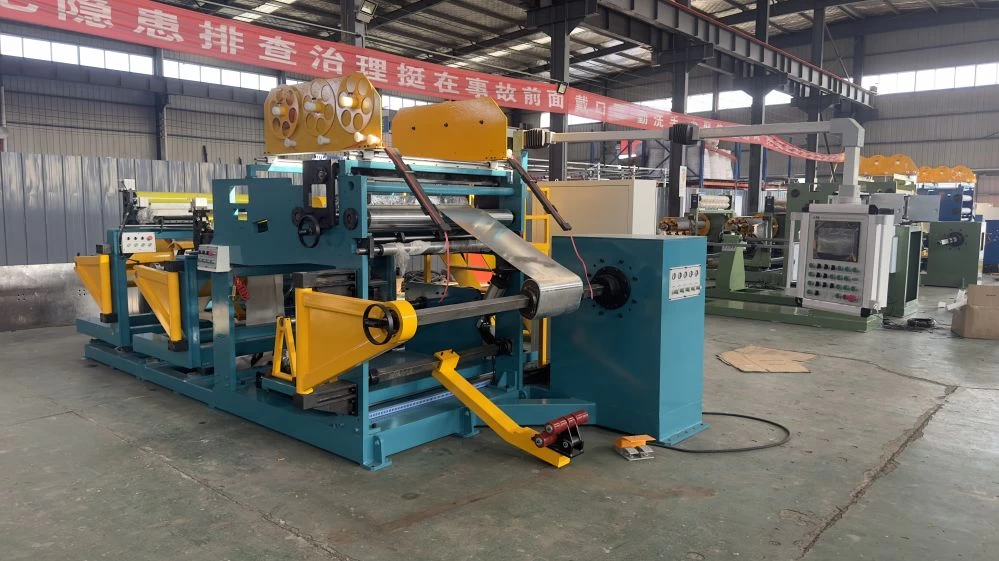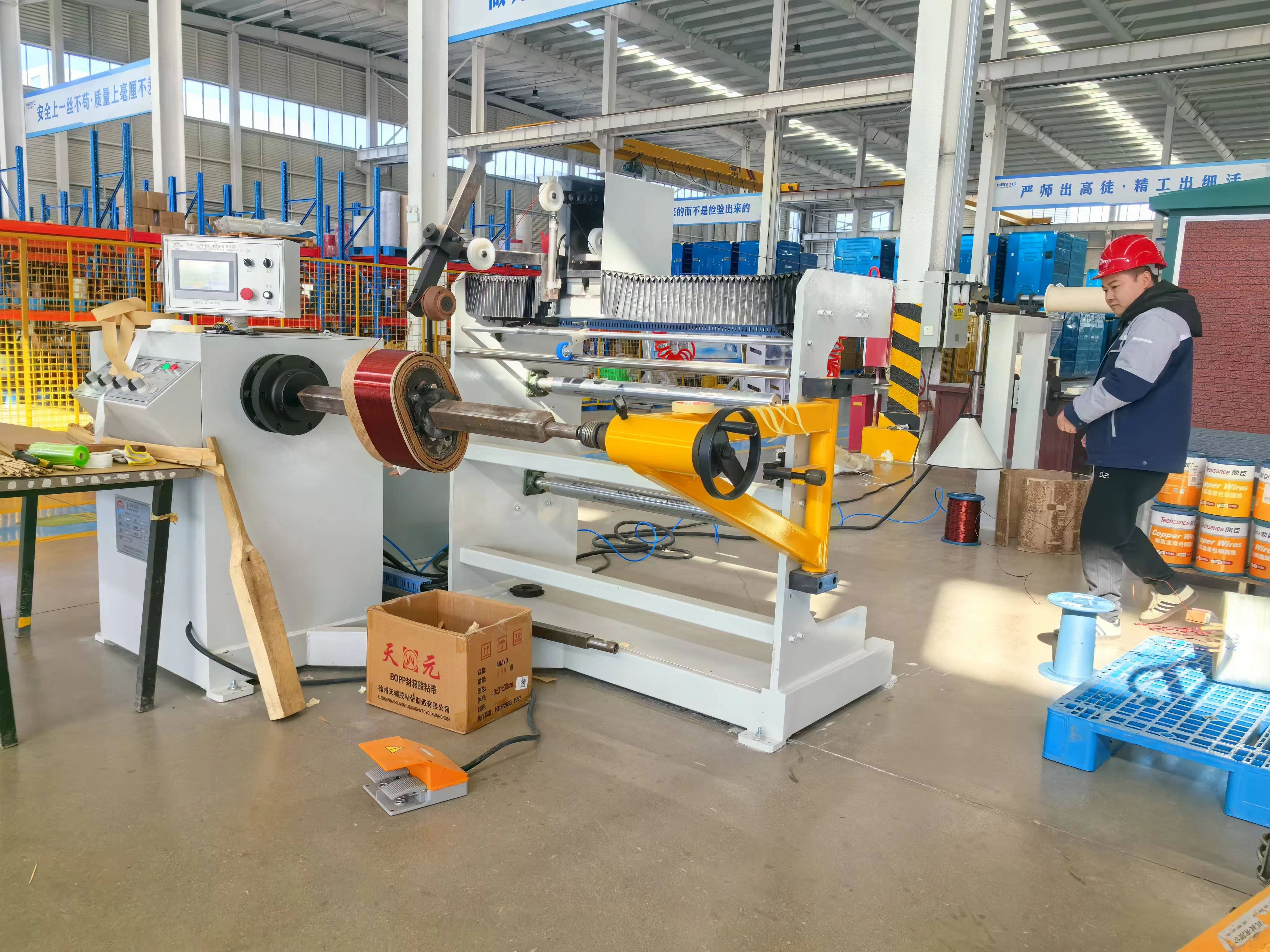The Power of Precision: Revolutionizing Industry with Press Machines (压机)
Press machines, commonly known as 压机 in Chinese, are the unsung heroes of manufacturing, quietly powering a wide range of industries. These machines operate using mechanical or hydraulic force to reshape materials such as metals, plastics, and composites, enabling them to produce everything from car bodies to smartphone casings with high precision and efficiency. As industries continue to evolve and demand tighter tolerances, press machines have cemented their place as indispensable tools that drive modern production processes.

One of the defining characteristics of press machines is their precision in material shaping and forming. Whether it’s metal stamping, bending, punching, or deep drawing, these machines excel at transforming raw materials into complex and refined parts. Automotive, aerospace, electronics, and appliance manufacturing all depend heavily on press machines to create the components that power their products. For instance, automotive manufacturers rely on press machines to mold body panels and structural components with unmatched precision. Without such machines, producing uniform parts at a large scale would be nearly impossible.
The versatility of press machines is another factor behind their significance. Different industries require tailored solutions to meet specific production needs, and 压机 come in multiple configurations, such as mechanical presses, hydraulic presses, and pneumatic presses. Hydraulic presses, which use fluid power, are particularly known for delivering consistent force across multiple cycles—ideal for heavy-duty tasks like forging and molding large metal parts. In contrast, mechanical presses are faster and more suited to tasks where speed and repetition are critical, such as high-volume stamping operations. Pneumatic presses, powered by compressed air, fill the niche for light-duty applications with rapid cycling needs. This adaptability makes press machines the go-to solution in virtually any industrial setting.
Efficiency gains through automation are another reason press machines are crucial. With the rise of Industry 4.0 technologies, automated press machines have become common in factories across the globe. Many modern press systems now integrate robotic arms, sensors, and advanced control software, enabling continuous production without manual intervention. Such automation helps reduce labor costs, minimizes human error, and increases output while ensuring consistent quality. In this way, press machines are not only reducing production times but also enhancing product quality—an essential factor in today’s competitive market.
Beyond just efficiency, press machines also play a key role in sustainability efforts. As industries strive to meet environmental standards and reduce waste, precision forming with press machines helps to minimize excess material usage. In addition, many press systems are designed with energy-saving technologies that reduce power consumption during idle times, improving overall energy efficiency in production facilities. For manufacturers, this shift towards green manufacturing not only enhances their environmental credentials but also improves their bottom line by cutting operational costs.
The application of 压机 continues to expand beyond traditional sectors. Emerging industries like electric vehicle (EV) manufacturing and renewable energy production increasingly rely on advanced press technologies to shape specialized components. For example, the lightweight aluminum frames and high-strength battery enclosures found in electric vehicles are produced using high-performance press machines. Similarly, wind turbine manufacturers depend on press machines to form the large, intricate blades required for energy generation. As the world pivots towards sustainability and innovation, the role of press machines will only grow in importance.
Another exciting development in the world of press technology is the integration of smart manufacturing solutions. Smart presses are equipped with sensors that monitor parameters such as pressure, temperature, and cycle speed in real time. Through IoT (Internet of Things) connectivity, these machines can communicate with other equipment in the production line to optimize workflows and predict maintenance needs before a breakdown occurs. This predictive maintenance capability not only reduces downtime but also extends the lifespan of the machines, providing a significant return on investment for manufacturers.
Safety has also been enhanced through innovation. Modern press machines are now designed with advanced safety features, including automatic shut-off mechanisms, light curtains, and protective barriers, ensuring that workers are shielded from potential hazards during operation. With remote control capabilities becoming more prevalent, operators can now monitor and adjust machine settings from a safe distance, further reducing the risks associated with high-pressure operations.
The growing emphasis on customization and rapid prototyping is another area where press machines shine. As consumer preferences shift towards personalized products, manufacturers need tools that can quickly switch between different production settings. CNC-controlled press machines (Computer Numerical Control) have made it possible to achieve precise, repeatable results with minimal retooling, making them ideal for short-run production and prototype development. This ability to adapt quickly to changing demands gives companies a competitive edge in today’s fast-paced market.
In the future, press machines will likely play an even more pivotal role in shaping the landscape of advanced manufacturing. Innovations such as 3D printing-press hybrids are already on the horizon, combining the strengths of additive manufacturing with the power of press technology. This new breed of equipment could open the door to producing complex metal parts that are not only lightweight but also structurally robust—a critical requirement for industries like aerospace and defense. Furthermore, the ongoing development of eco-friendly press solutions will ensure that these machines continue to align with global sustainability goals.
In conclusion, 压机 (press machines) are far more than just industrial equipment; they represent the backbone of modern manufacturing. Their ability to deliver precision, efficiency, and adaptability makes them essential across a wide range of industries, from automotive to aerospace and beyond. As manufacturing technology continues to advance, press machines will remain at the forefront of industrial innovation, driving progress toward a more efficient, sustainable, and customized future.
提示:在享受本文内容的同时,请注意版权归属 徐州鑫坤机电设备有限公司https://www.xzxkjd.com如果您觉得有价值欢迎分享,但请务必注明出处,感谢您的理解,谢谢!
以下部分内容需要登录查看 立即登录

 简体中文
简体中文 繁體中文
繁體中文 English
English Nederlands
Nederlands Français
Français Русский язык
Русский язык Polski
Polski 日本語
日本語 ภาษาไทย
ภาษาไทย Deutsch
Deutsch Português
Português español
español Italiano
Italiano 한어
한어 Suomalainen
Suomalainen Gaeilge
Gaeilge dansk
dansk Tiếng Việt
Tiếng Việt Pilipino
Pilipino Ελληνικά
Ελληνικά Maori
Maori tongan
tongan ᐃᓄᒃᑎᑐᑦ
ᐃᓄᒃᑎᑐᑦ ଓଡିଆ
ଓଡିଆ Malagasy
Malagasy Norge
Norge bosanski
bosanski नेपालीName
नेपालीName čeština
čeština فارسی
فارسی हिंदी
हिंदी Kiswahili
Kiswahili ÍslandName
ÍslandName ગુજરાતી
ગુજરાતી Slovenská
Slovenská היברית
היברית ಕನ್ನಡ್Name
ಕನ್ನಡ್Name Magyar
Magyar தாமில்
தாமில் بالعربية
بالعربية বাংলা
বাংলা Azərbaycan
Azərbaycan lifiava
lifiava IndonesiaName
IndonesiaName Lietuva
Lietuva Malti
Malti català
català latviešu
latviešu УкраїнськаName
УкраїнськаName Cymraeg
Cymraeg ກະຣຸນາ
ກະຣຸນາ తెలుగుQFontDatabase
తెలుగుQFontDatabase Română
Română Kreyòl ayisyen
Kreyòl ayisyen Svenska
Svenska հայերեն
հայերեն ဗာရမ်
ဗာရမ် پښتوName
پښتوName Kurdî
Kurdî Türkçe
Türkçe български
български Malay
Malay मराठीName
मराठीName eesti keel
eesti keel മലമാലം
മലമാലം slovenščina
slovenščina اوردو
اوردو አማርኛ
አማርኛ ਪੰਜਾਬੀName
ਪੰਜਾਬੀName albanian
albanian Hrvatski
Hrvatski Suid-Afrikaanse Dutch taal
Suid-Afrikaanse Dutch taal ខ្មែរKCharselect unicode block name
ខ្មែរKCharselect unicode block name




